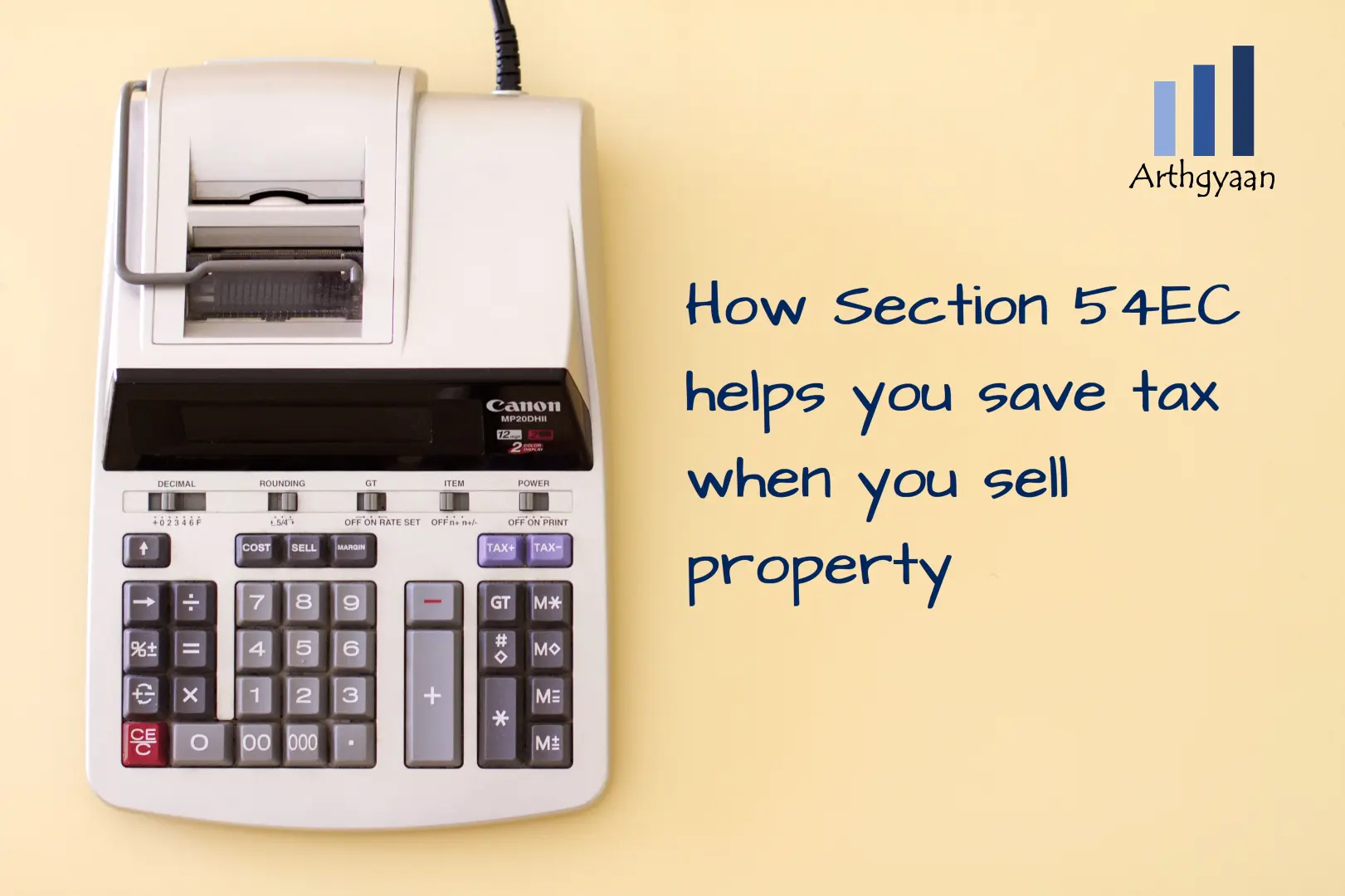How Section 54EC helps you save tax when you sell property
This article discusses the Section 54EC exemption available for property sale: conditions applicable and worked-out examples.
This article discusses the Section 54EC exemption available for property sale: conditions applicable and worked-out examples.

Originally published: 14-Aug-2022
Updated: 23-Jul-2024 - indexation removed and LTCG rate reduced in Union Budget 2024
Disclaimer: Taxation is a dynamic concept, and the content of this article is valid on the date of publication and any subsequent updates. Always consult a professional tax advisor before doing anything that leads to taxes being due.
Under Section 54EC, you can save long-term capital gains (LTCG) tax if you have sold immovable property like land or buildings.
The logic here is like this:
The following conditions must be fulfilled to apply Section 54EC
Note: If you sold the property before 24 months, the capital gains are called short-term (STCG) and are taxed at your current slab rates. The entire profit gets added to your taxable income, and you pay tax at the highest rate applicable to you, which could be 30% or more.
54EC eligible bonds are issued to fund infrastructure projects by issuers like REC, NHAI, PFC and IRFC, amongst others:
These issuers are government-backed, with minimal risk of not getting back the money at the end of five years. Investing in these bonds gives you a tax benefit while the project gets cheap funding. It is a win-win for both parties.
Important: In a surprise move, Union Budget 2024 removed the concept of indexation and dropped the capital gains tax rate from 20% for 12.5% for all property sales on or after 23-Jul-2024. Section 54EC exemption has not been touched.
Read more here: Budget 2024: A Surprise in Real Estate Sales due to Indexation Benefit Removal: Is it good or bad?
We are using the CII table from here for the calculation of LTCG. You will find additional worked-out examples and ways to combine capital gains with income in this article: How to calculate taxes from capital gains and combine them with your other income.
We take the example of an apartment purchased in 2010 and sold in 2018:
We will now take an example where the LTCG is more than 50 lakhs:
So far, the concept of Sec54EC tax exemption is reasonably rosy for the investor:
However, there is an opportunity cost as well, namely what you could have done with the gains after the tax instead of locking it up for five years. We will only talk about the first 50 lakhs of LTCG since that is the 54EC exemption limit; above that, it is taxable:
Here is an article discussing using the house sale amount in an effective way for buying a new house: Can You Buy a House with EMI Equal to Rent? Here’s How

Published: 18 December 2025
7 MIN READ
1. Email me with any questions.
2. Use our goal-based investing template to prepare a financial plan for yourself.Don't forget to share this article on WhatsApp or Twitter or post this to Facebook.
Discuss this post with us via Facebook or get regular bite-sized updates on Twitter.
More posts...Disclaimer: Content on this site is for educational purpose only and is not financial advice. Nothing on this site should be construed as an offer or recommendation to buy/sell any financial product or service. Please consult a registered investment advisor before making any investments.
This post titled How Section 54EC helps you save tax when you sell property first appeared on 14 Aug 2022 at https://arthgyaan.com